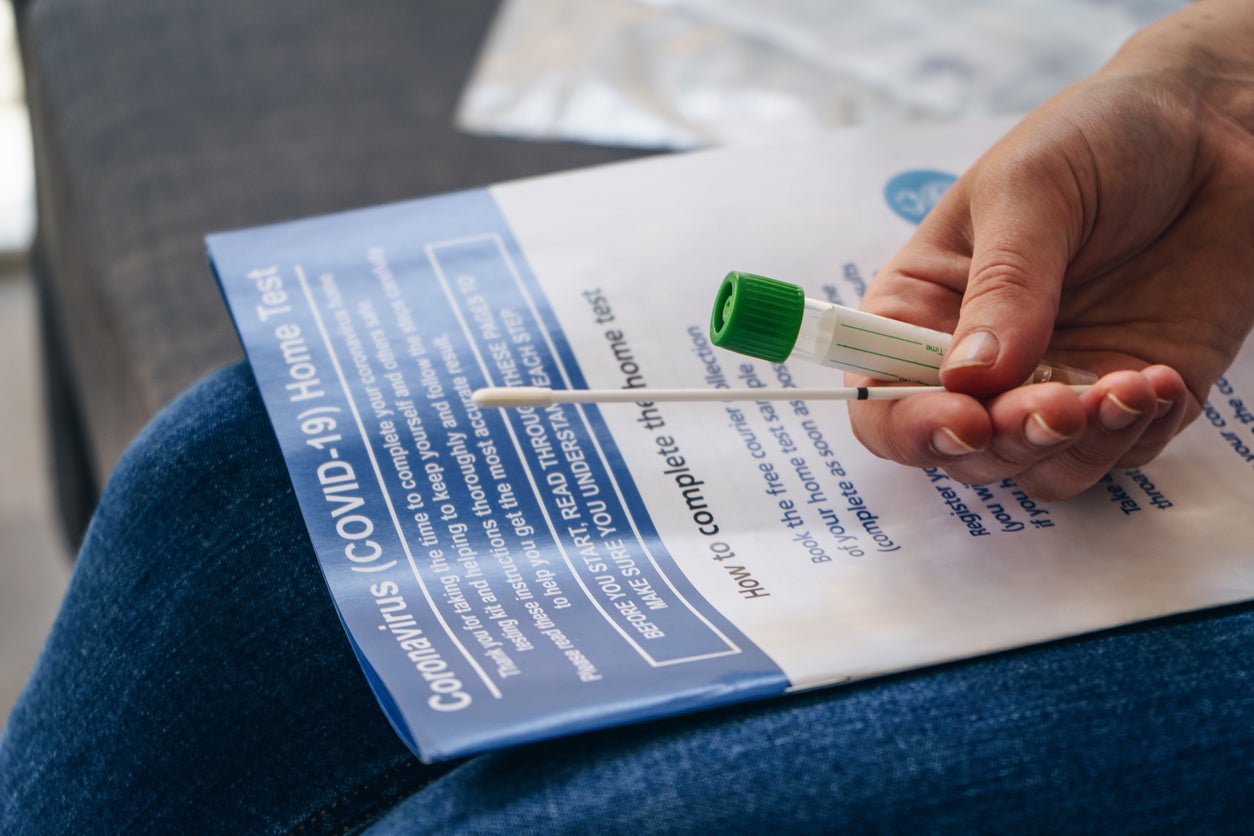Testing airport passengers is twice as effective as quarantine in reducing Covid transmission, claims report
Government’s 14-day self-isolation policy is the ‘least effective’ method of preventing community transmission compared to all forms of passenger testing

Your support helps us to tell the story
From reproductive rights to climate change to Big Tech, The Independent is on the ground when the story is developing. Whether it's investigating the financials of Elon Musk's pro-Trump PAC or producing our latest documentary, 'The A Word', which shines a light on the American women fighting for reproductive rights, we know how important it is to parse out the facts from the messaging.
At such a critical moment in US history, we need reporters on the ground. Your donation allows us to keep sending journalists to speak to both sides of the story.
The Independent is trusted by Americans across the entire political spectrum. And unlike many other quality news outlets, we choose not to lock Americans out of our reporting and analysis with paywalls. We believe quality journalism should be available to everyone, paid for by those who can afford it.
Your support makes all the difference.Testing passengers for coronavirus on arrival into the UK is twice as effective at reducing community transmission as the government’s current blanket 14-day quarantine policy, according to a new report.
A single test on arrival could reduce the number of “infectious days” that someone is in the community by 51 per cent – more than double the current policy. A PCR test taken three days pre-departure reduces the infectious days by 36 per cent, claims the research.
Compiled by economics consultancy Oxera and healthcare data specialists Edge Health, the study claims the two-week quarantine is actually the least effective method of preventing Covid-19 transmission compared to all forms of passenger testing.
The report was commissioned by businesses and organisations within the aviation industry, including IAG (British Airways’ parent company), Virgin Atlantic, Tui, Heathrow airport, Manchester Airports Group, Iata and Airlines UK.
The study used modelling that takes into account human behaviour and non-compliance: ie, the likelihood that someone arriving into the UK will not strictly abide by the self-isolation rules.
According to the study, adherence to quarantine is particularly low among asymptomatic individuals – when this non-compliance is taken into account, the 14-day policy only reduces the number of “infectious days” that an individual is in the community by 25 per cent.
Using a London School of Hygiene and Tropical Medicine (LSHTM) model as a starting point, the researchers applied recent real-world Covid-19 rates and air passenger numbers to produce a picture of the most effective policy options.
The report claims that a “test and release” approach – whereby arrivals quarantine for a shorter amount of time before being tested and released from self-isolation if their test result is negative – is significantly more effective when quarantine is just three days as opposed to five or seven days.
“The three days option balances between ensuring sufficient time for Covid-19 to become detectable and a swift enough result to inform the non-compliant infected individuals in the community of their infectious status, thus ensuring they go into isolation,” reads the research.
A Public Health England (PHE) paper, which underpins the Government’s current policymaking, assumes 100 per cent compliance for the two-week quarantine.
However, a recent study produced in partnership with the Norwegian Institute of Public Health posited that 29 per cent of symptomatic individuals may not be following the rules, with this soaring to 72 per cent for those who were asymptomatic.
“The current policy of 14-day quarantine is the least effective strategy due to human behaviour, with returning travellers often failing to comply and risking community transmission,” said George Batchelor, cofounder and director of Edge Health.
“Our modelling finds a much more effective path in passenger testing, which if it’s applied as a ‘test and release’ regime, performs the best at reducing infectious days after three days quarantine. This balances the detectability of Covid-19 and new evidence of quarantine non-compliance.”
The study’s authors have submitted the report to the government’s Global Travel Taskforce, the team responsible for deciding how the UK moves forward with international travel during the pandemic.

Join our commenting forum
Join thought-provoking conversations, follow other Independent readers and see their replies
Comments